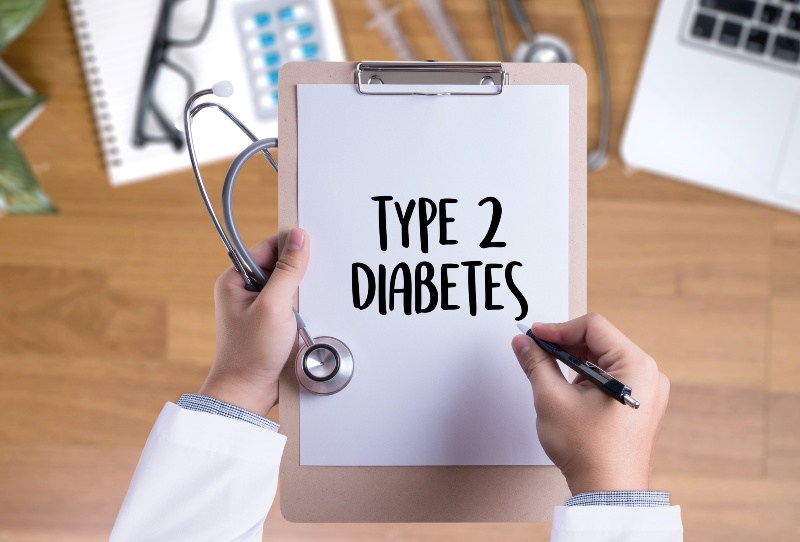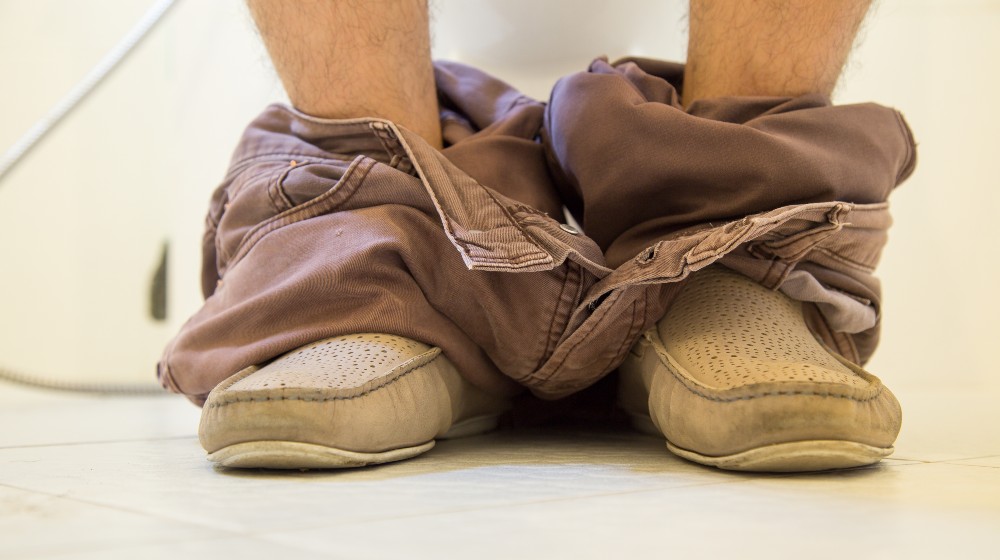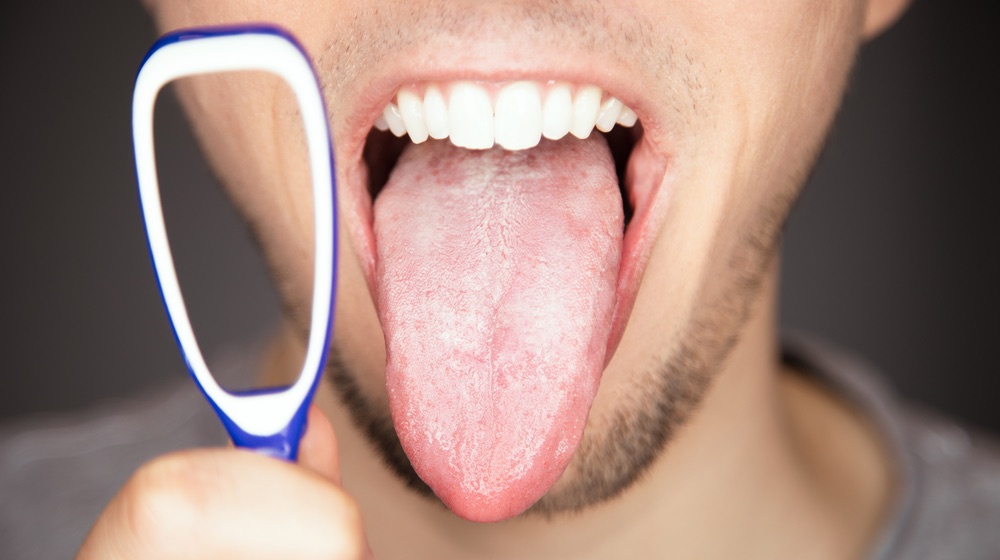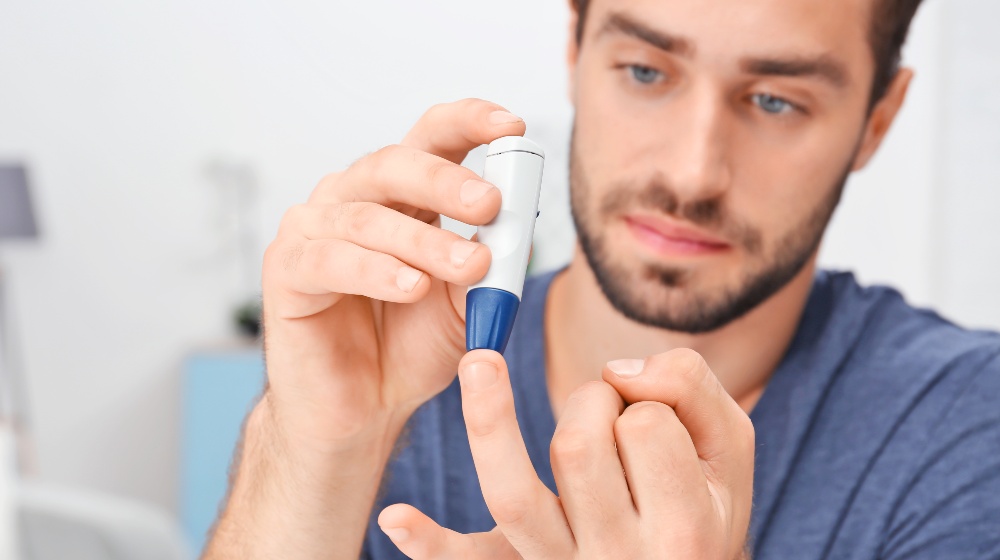In Depth Look at Type 2 Diabetes Symptoms and the Effect on Men’s Health
As men, we're more susceptible to developing type 2 diabetes. The good news is that recognizing type 2 diabetes symptoms can lessen your risk of having this disease and prevent complications.
Here's what you need to know about this impairment so you can have proper healthcare management.
RELATED: How To Control Your Blood Sugar | Bulletproof Radio [LISTEN]
Understanding Type 2 Diabetes Symptoms | Frequently Asked Questions
What Does Type 2 Diabetes Mean?

Diabetes is a life-long disorder wherein your body can't make or absorb insulin, a hormone that turns blood glucose into energy.
There are various types of diabetes, but the main ones are type 1 and type 2.
In type 1 diabetes, your body does not make insulin. This is because your immune system destroys the cells that produce this hormone. However, that's not the case with the other type.
In type 2 diabetes, your body produces insulin, but it's either not sufficient, or your body can't identify and respond to it properly. This is known as insulin resistance.
When this condition occurs, sugar can't enter your cells to be used as a source of energy. And since there would be excessive glucose circulating in your bloodstream, your blood sugar spikes.
Type 2 diabetes is also known as adult-onset diabetes or non-insulin-dependent diabetes. It's the most common type of diabetes, affecting 462 million people worldwide.
In the US, almost one out of 10 Americans have diabetes, and around 90% to 95% of these individuals have type 2 diabetes.
How Does Type 2 Diabetes Make You Feel?

The symptoms of diabetes type 2 may be mild and gradual during its early stages. This leads to people not recognizing that they already have the disease.
The warning signs and symptoms may differ from person to person but may include:
- Frequent urination: Since you have increased blood glucose levels, your kidneys try to get rid of the extra sugar. They filter your blood, resulting in a need for frequent urination, especially at night.
- Blurry vision: Too much glucose in your blood can affect the small blood vessels in your eyes. With this, one or both eyes may have blurry vision. If left untreated, this damage may become serious and lead to blindness.
- Dark patches: You might notice that the skin on your groin, neck, and armpit is dark, soft, and velvety. This is a skin disorder called acanthosis nigricans, which is linked with diabetes.
- Fatigue: Type 2 diabetes can significantly affect your energy levels. Since you don't have enough glucose traveling from your blood to your cells, you may feel extreme tiredness.
- Excessive thirst: When you have diabetes, you urinate more frequently. Your body loses water, and you'll feel dehydrated and more thirsty than usual.
- Numbness in hands and feet: When your blood glucose levels are high, your blood circulation is also affected. Poor blood circulation can result in a tingling sensation and nerve damage.
- Increased appetite: Your body isn't able to get adequate energy from the food that you eat when you have diabetes. This leads to constantly feeling hungry, even if you've just eaten.
- Slow wound healing: Since your body's nerves and blood vessels are affected, even small cuts may take time to heal.
How Does Type 2 Diabetes Affect the Body?

Anyone may develop type 2 diabetes. However, as men, you may feel signs of type 2 diabetes that are unique to your gender such as having low testosterone. This deficiency can cause depression and loss of libido.
Other signs of diabetes in men include sexual and urological health issues such as:
- Retrograde ejaculation: Since diabetes damages your nerves, your bladder contraction during ejaculation is affected as well. When this happens, your semen goes back to your bladder instead of exiting through your penis. During ejaculation, you'll notice that less semen is released.
- Erectile dysfunction: The nerves and blood vessels in the penis of men who have diabetes are affected, resulting in difficulty to get or maintain an erection. In fact, studies show that around 35% to 75% of those with diabetes will experience erectile dysfunction.
- Genital thrush: Since the excess glucose gets out of your body through urination, the head of your penis might be affected by a fungal yeast infection called thrush. You'll feel itching, redness, and swelling on this part, and you might have a discharge that looks like cottage cheese. You'll also experience discomfort and soreness during sex.
RELATED: 17 Foods to Lower High Blood Pressure Without Medication
Who Is Most At Risk for Type 2 Diabetes?

In addition to your gender, there are other risk factors for type 2 diabetes including:
- Family history: If your family, particularly your parent or sibling, has a history of type 2 diabetes, your risk of developing this disease increases.
- Age: As you get older, your risk of type 2 diabetes also goes up. Get yourself checked after reaching 45.
- Inactivity: If you aren't physically active, you won't be able to manage your weight and use up sugar as energy. These will put you at a greater risk of type 2 diabetes.
- Weight: If you're overweight or obese, your fats are stored in your abdomen, and your waist size is more than 40 inches, you're more likely to develop type 2 diabetes.
What Happens When Diabetes Is Not Treated?

If unmanaged, type 2 diabetes can lead to serious complications with several major organs including your skin, eyes, kidneys, nerves, heart, and blood vessels.
Some of the problems associated with diabetes are the following:
- Heart disease: When you have diabetes, you're also at a higher risk of developing hypertension, stroke, and irregular heart rhythms. In addition, your arteries might become narrow due to plaque buildup, also known as atherosclerosis.
- Hearing impairment: Diabetes may also damage the nerves and tiny blood vessels of your ear, resulting in hearing loss.
- Retinopathy: If you don't have an eye problem yet, chances are you'll develop one over time. With diabetes, you have an increased risk of eye damage such as glaucoma and cataracts.
- Kidney disease: Diabetes can cause irreversible damage to your kidneys, and you might need to undergo a kidney transplant or dialysis.
- Dementia: Individuals with type 2 diabetes have an increased risk of developing Alzheimer's disease. Additionally, diabetes can affect your memory, problem-solving, and decision-making skills, as well as other mental abilities.
How Do You Beat Type 2 Diabetes?

There's no cure yet for type 2 diabetes. However, a lot of consequences brought about by this disease can be treated or prevented. Pay attention to your health, and do the following to manage your blood glucose:
- Talk to your doctor: Your physician can measure the sugar levels in your blood to detect type 2 diabetes. He can advise treatments and medications that you may need.
- Change unhealthy habits: Avoid too much drinking and smoking. The Centers for Disease Control and Prevention recommends moderate drinking, which is equivalent to two drinks or less per day.
- Stay active: Exercise at least 30 minutes daily. Do aerobics like running, swimming, and brisk walking.
- Eat well: A balanced diet helps manage your blood glucose levels. Keep away from fats, sugar, and sodium. Aim for fruits, vegetables, whole grains, and low-calorie, high-fiber meals.
Watch this video by Nebraska Medicine Nebraska Medical Center as a man named Ron shares his experience with type 2 diabetes symptoms:
Learning about type 2 diabetes symptoms can help prevent life-threatening complications. Watch out for the above signs and indications so you can effectively manage your health.
What other type 2 diabetes symptoms do you have in mind? Please share your thoughts with us in the comment section below!
Up Next:
- 5 Common Health Problems For Men Over 50
- Top 10 Preventive Care Tests You Need at Ages 50 and Above
- Testicular Cancer Survivor, Matt Ode, Shares His Story of Hope, Purpose, and “Winning the Day” [PODCAST]
Calling all Health Buffs! If you’ve got the gift of keeping healthy and sharing this knowledge through writing, click here if you want to write for us.
Please stay connected with us on Facebook, Twitter, Instagram, and Pinterest, and make sure to join our community of healthy living and minded people here.
Trending
Best Multivitamin for Men | Top 10 Best Multivitamins for Men 2022
Tongue Color | 7 Scary Tongue Color Meanings
Get Updates
SIGN UP FOR OUR NEWSLETTER TODAY


Tongue Color | 7 Scary Tongue Color Meanings

